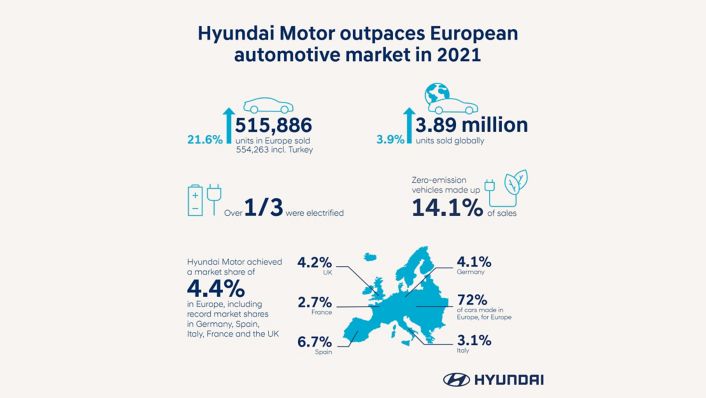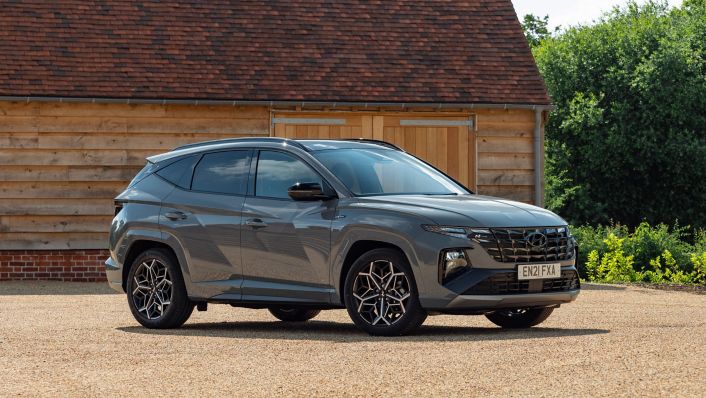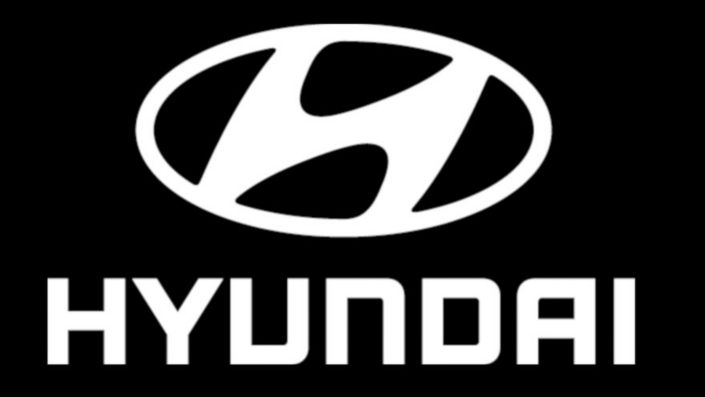- Hyundai Motor sold 515,886 units in Europe in 2021, a 21,6 per cent increase over 2020
- Sales of electrified vehicles in Europe are up 77 per cent compared to the previous year
- The company also achieved record market shares in Germany, France, Spain, Italy, and the UK
Press material
-
Download
-
Images
The company sold 515,886 units in Europe last year, a 21,6 per cent increase as compared to 2020. This resulted in a market share growth of 1 percentage point to 4.4 per cent.
In addition, electrified vehicles made up a bigger proportion of sales than ever before. Thirty-five per cent of Hyundai vehicles sold in Europe in 2021 had an alternative powertrain, which includes hybrid, plug-in hybrid, battery-electric, and fuel cell electric vehicles. This represents a 77 per cent increase over the previous year. Of these, 72,509 were zero-emission vehicles – battery-electric and fuel cell electric vehicles – making up 14.1 per cent of sales in Europe.

It’s a true testament to the strength of our line-up and the quality of our service that Hyundai was able to outpace the automotive market in Europe. In 2021, we faced supply chain disruptions and an ongoing pandemic that continues to affect everything from international travel to everyday life. Nevertheless, our dealer network has proven they were able to maintain the quality of their service, even in the light of challenging circumstances. This really proves the success of our customer-centric approach.
European markets see record market shares
In addition to a 4.4 per cent market share in Europe, Hyundai also achieved record market shares in Germany, Spain, Italy, France, and the UK in 2021. In Germany, Hyundai models made up 4.1 per cent of all cars sold, half a percentage point more than the previous year and an all-time record. This represented 106,620 new vehicle registrations in Germany.
In Spain, meanwhile, Hyundai reached a market share of 6.7 per cent – an all-time high. This amounted to 57,508 registered vehicles. Following the launch of IONIQ 5, Hyundai’s fully-electric midsize CUV and flagship battery-electric model, the company led sales in the second half of the year. Hyundai also ended the year as the top Asian car manufacturer in Spain, and in fifth place among all manufacturers.
Hyundai’s market share in Italy, meanwhile, reached 3.1 per cent in 2021, an increase of 0.7 percentage points as compared to the year before, and 0.5 percentage points higher than 2019. Italy also saw a 35 per cent increase in sales as compared to the previous year. In 2021, 28 per cent of Hyundai vehicles sold in Italy were electrified.
In France, Hyundai also achieved its highest-ever market share, at 2.7 per cent – 0.6 percentage points higher than the previous year. Sales were also up 30.8 per cent compared to the previous year, with a total of 45,241 Hyundai vehicles sold in France in 2021.
The UK market also saw significant success for Hyundai. The company sold 69,680 units, which represented a market share of 4.2 per cent – its highest ever in the UK to date. Year-on-year sales increased by 47 per cent, boosted by new model introductions such as BAYON, KONA N and IONIQ 5, and the company sold more than 12,500 zero-emission vehicles in 2021, the fourth largest number of any manufacturer.
Hyundai TUCSON leading the way
The all-around bestseller was once again the Hyundai TUCSON compact SUV. Following a model renewal at the end of 2020, the all-new TUCSON saw a surge in sales in 2021. With 152,257 units sold, TUCSON made up 29.5 per cent of Hyundai sales in Europe in 2021. This was followed by the B-segment SUV Hyundai KONA, with 109,902 units sold, and i20, with 60,560 units sold.
The strong sales results for Hyundai SUVs in Europe are a testament to the diversity of the company’s SUV line-up. With products spanning both the B, C and D segments, and covering every type of powertrain available, Hyundai SUVs are in a unique position to satisfy a range of different lifestyles and customer demands.

EV sales up 77 per cent
Sales of electrified vehicles in Europe were up 77 per cent in 2021 compared to the previous year. Last year, Hyundai sold 182,437 electrified models in Europe. Alternative powertrains made up 35 per cent of total sales of Hyundai vehicles in Europe.
Of these, 72,509 were zero-emission vehicles, or battery-electric and fuel cell electric vehicles. Zero-emission vehicles made up 14.1 per cent of sales in Europe in 2021 – a 26 per cent increase over the year before.
In 2021, the TUCSON Hybrid was the best-selling electrified Hyundai model in Europe, with 43,792 units sold, and KONA Electric topped the list of best-selling Hyundai zero-emission vehicles, with 44,069 units sold. A testament to the model’s quality as well as eco-friendliness, two members of Divers Alert Network (DAN) Europe recently drove 25,000 kilometres across Europe in a KONA Electric to promote sustainable business practices.
The newly introduced IONIQ 5 was also very well received. It already accounts for more than 3.7 per cent of all sales.
Increasing its share of low- and zero-emission vehicles is part of Hyundai’s strategy to achieve carbon neutrality by 2045.
Made in Europe
From TUCSON to KONA Electric, six of the company’s best-selling models in Europe are also produced in Europe in factories in Turkey and the Czech Republic. These alone make up 72 per cent of the total sales in Europe, with 371,302 vehicles sold.
Hyundai Assan Otomotiv Sanayi (HAOS) is Hyundai’s longest-running plant outside of Korea. It is located in İzmit, Turkey and has been in operation since 1997. HAOS produces i10, i20, i20 N, and BAYON for Europe. With nearly 2,500 employees, it has an annual capacity for 230,000 units. In 2019, Hyundai Motor celebrated the 2 millionth vehicle produced at its Turkish plant.
Hyundai Motor Manufacturing Czech, Hyundai’s manufacturing plant in Nošovice, Czech Republic, has been producing vehicles since 2008. It is one of the most modern production plants in Europe and has a capacity for 350,000 vehicles per year. HMMC produces nearly every type of powertrain available, from petrol and diesel combustion engines to plug-in hybrids and battery-electric vehicles. For Europe, HMMC produces i30, i30 N, TUCSON, and KONA Electric. By producing nearly every type of powertrain in Europe, Hyundai is increasing its engagement in the region and underlining the importance of Europe in its overall business strategy.
Diverse model line-up for every type of customer
Hyundai is the manufacturer with the most diverse powertrain line-up on the market. The company offers passenger vehicles with every type of powertrain available, including internal-combustion, battery-electric, hybrid and plug-in hybrid, and hydrogen fuel cell.
Last year, Hyundai introduced IONIQ 5, a battery-electric vehicle which introduced advanced sustainability as well as technological innovations. IONIQ 5 is a fully-electric midsize CUV and the first model in the company’s new IONIQ line-up brand. The model also featured in an episode of Are We There Yet? In Season 1, Episode 11, three of the top minds at Hyundai chat with host Suzi Perry about IONIQ 5’s electrified features, sustainable materials, and futuristic design.
IONIQ 5 wasn’t the only new model Hyundai introduced in 2021. In one of the strongest years for product launches to date, the company also revealed BAYON and KONA N, strengthening its standing in the B-segment and reaching out to new target groups with the company’s first ‘hot SUV’. New model STARIA also saw its debut, a multi-purpose vehicle (MPV) which will serve as a model for the company’s future Purpose Built Vehicles (PBVs).
In 2022, Hyundai will launch IONIQ 6, a battery-electric sedan and the second model in its IONIQ line-up brand. IONIQ 6 will be based on the concept car Prophecy. The company has also hinted at an expansion of its high-performance N line-up. Globally, Hyundai aims to sell 4.3 million vehicles in 2022.







